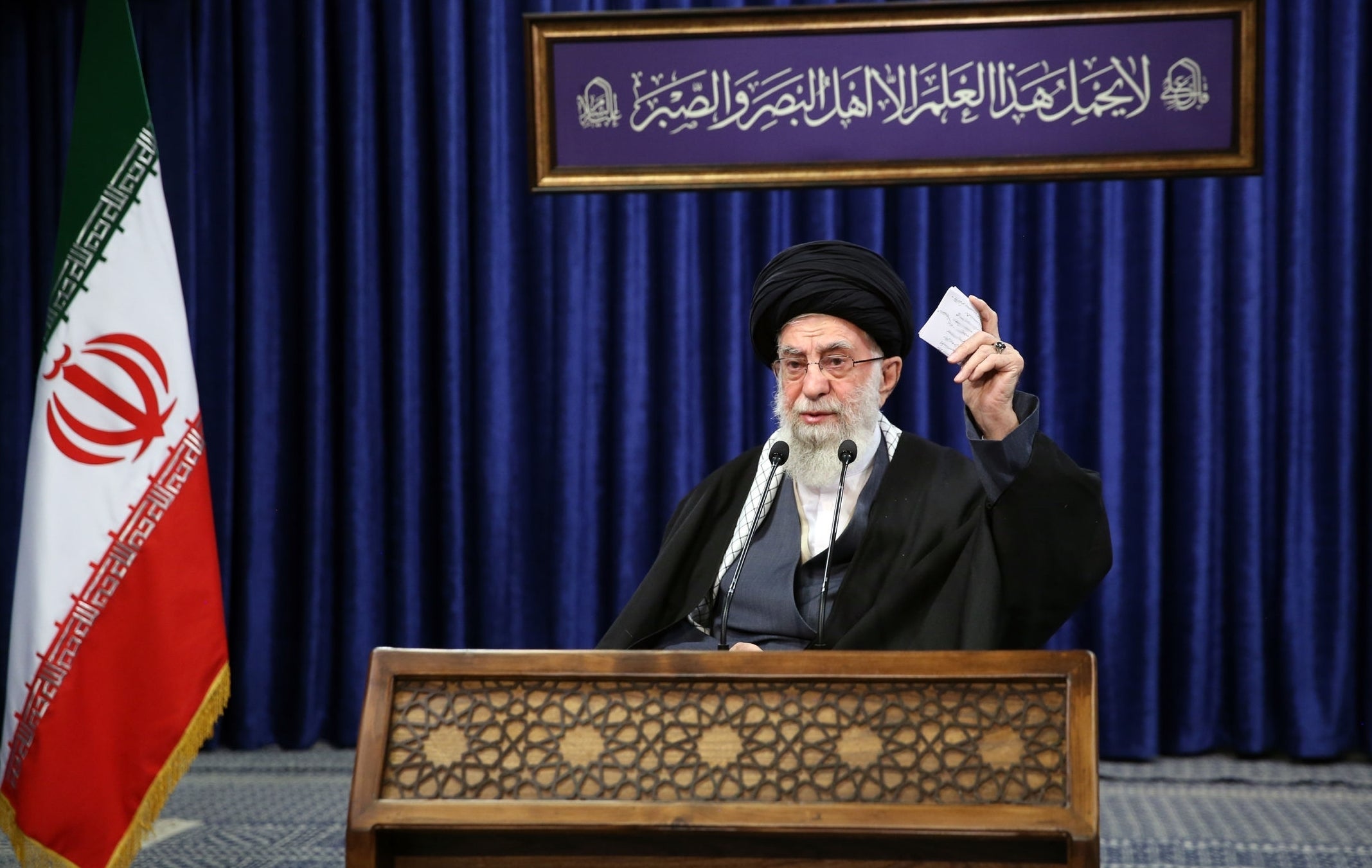Iran leader bans UK and US Covid vaccines because he doesn’t ‘trust’ them
Ayatollah Khamenei said he had “no confidence" in British and American vaccines

Iran has banned the import of British and American-made coronavirus vaccines, with its supreme leader explaining that he does not trust them.
In a televised address on Friday, Ayatollah Ali Khamenei, the country’s highest-ranking cleric, said doses of the Pfizer/BioNTech and AstraZeneca vaccines would not be allowed into Iran.
"Imports of U.S. and British vaccines into the country are forbidden. I have told this to officials and I'm saying it publicly now,” he said.
Ayatollah Khamenei added that he had “no confidence in them”, claiming that the UK and the US would not be in the midst of “a coronavirus fiasco” if they “were able to produce a vaccine”.
The decision, which is the product of a deep-seated mistrust towards the West, does not come as a surprise because hardliners in Iran have long spoken out against foreign vaccines.
In December, the country’s powerful Revolutionary Guard stated its objection to vaccines produced abroad, with General Mohammad Reza Naghdi saying it “does not recommend the injection of any foreign vaccine”.
However, Ayatollah Khamenei said on Friday that the country could obtain vaccines "from other reliable places". Although he did not elaborate, China and Russia, which are both allies of Tehran, are producing vaccines.
Iran is also developing its own jab - Coviran - and started testing on humans last month. Doses of this vaccine are expected to be administered around the country from the spring.
Since the start of the pandemic, Iran, the worst affected country in the Middle East, has recorded 1,268,263 Covid-19 infections and 55,933 deaths from the virus, according to data from Johns Hopkins University.
However, international public health experts believe that the total number of cases and deaths is higher than the reported figures.
Earlier this week, the health minister Saeed Namaki confirmed that Iran had detected its first case of a new highly-contagious coronavirus variant, first found in Britain.
Additional reporting by agencies
Subscribe to Independent Premium to bookmark this article
Want to bookmark your favourite articles and stories to read or reference later? Start your Independent Premium subscription today.

Join our commenting forum
Join thought-provoking conversations, follow other Independent readers and see their replies